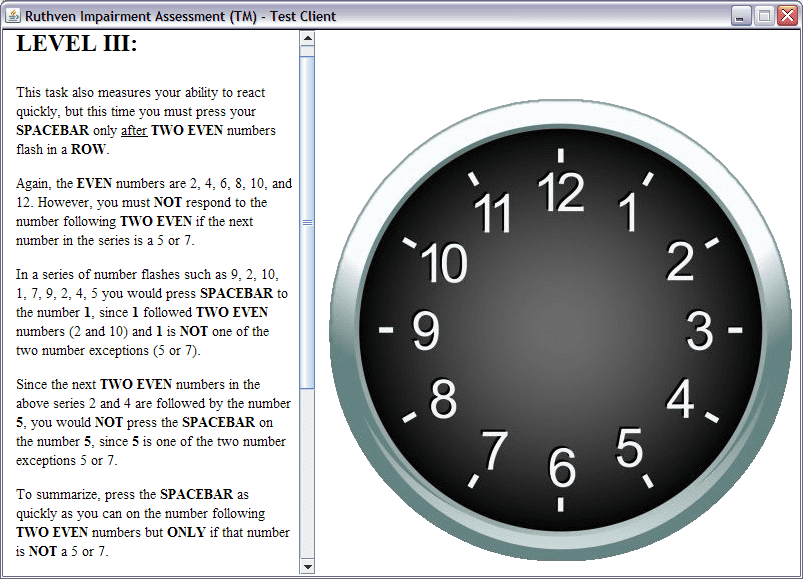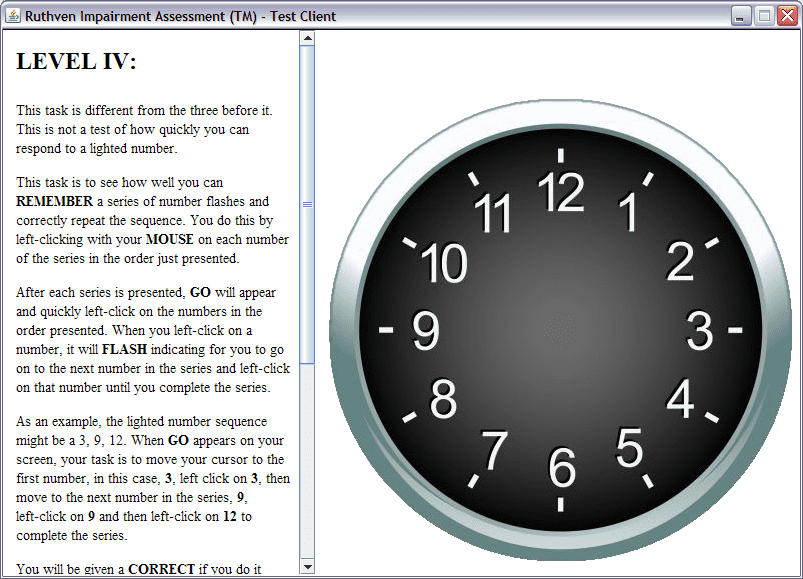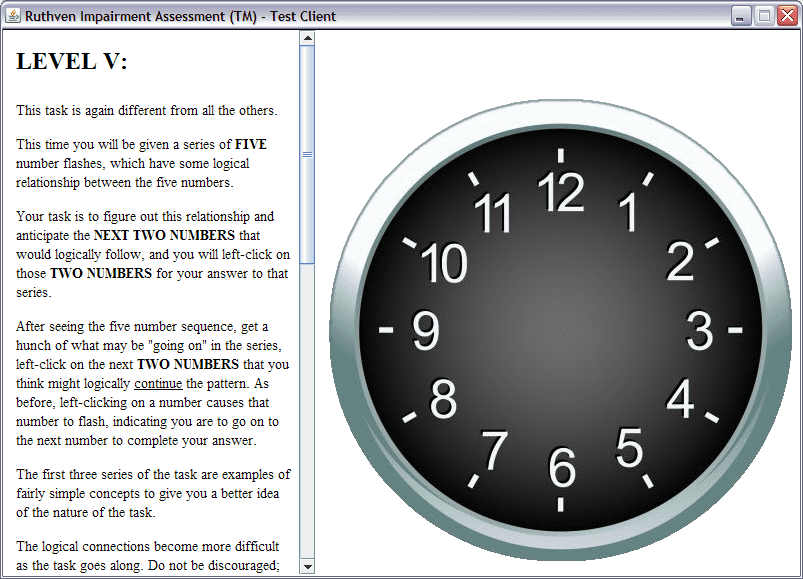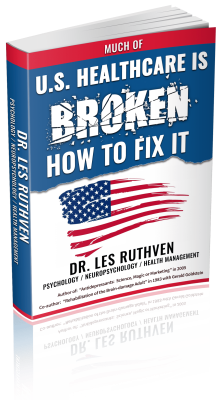The Ruthven
Impairment Assessment (RIA)
Clinical Psychology / Neuropsychology / Health Management / Author / Art Dealer
The RIA is a brief 15 minute online computer delivered test to determine normal vs. impaired cognition by testing the following.
- Simple, complex and conditional reaction time
- Attention / memory
- Anticipatory thinking / complex problem solving
Performance norms are based on 55 college students tested 3 times within a 10 day period. Research and clinical practice suggests the RIA may differentiate reversible from irreversible brain impairment. RIA test results for each user are stored in a database for future inspection and analysis. The RIA assessment includes an optional medical and drug history plus a 10 item symptom / behavior survey.
The RIA is available to clinical psychologists and neuropsychologists at no cost for 15 testings to evaluate the RIA for research and clinical purposes.
ABOUT THE RIA TEST

RIA: Subtest 1
The first 3 RT tests are performed by activating the space bar as quickly as one can per subtest 1 instructions.
Measures speed of mental processing, typically impaired in both reversible and irreversible brain impairment (static and progressive brain damage).
Mean RT is more diagnostic of impairment than number correct. Norms on 55 college students: Mean correct 9.7. 8 correct or less begins the impaired range. Mean RT was 0.33 sec., impaired range is 0.43 sec. or slower.
Note: scores in the impaired range on all subtests are taken as one standard deviation from the Mean in the impaired direction.
RIA: Subtest 2
Mean correct 8.63.
7 correct or less begins the impaired range.
Mean RT 0.50 sec.
RT 0.60 sec. or slower begins the impaired range.


RIA: Subtest 3
Mean correct 8.27. 5.68 correct or less begins the impaired range.
Mean RT is 0.51 sec., impaired range is RT 0.65 or slower.
In unimpaired subjects complex and conditional RTs are basically the same, 50% slower than simple RT. In impaired persons complex RT is more than 50% slower than simple RT and greater impairment is indicated when conditional RT is substantially slower than complex RT. The latter probably occurs because of the more complicated subtest 3 instructions.
1 or 2 number exception errors may reflect impairment if the test profile as a whole is also indicative of impairment
RIA: Subtest 4
The Mean number correct for the normative group on memory was 7.31 out of a possible 8.
6.48 or fewer correct items begins the impaired range. Working memory may reflect reversible or irreversible impairment depending on the test profile as a whole.


RIA: Subtest 5
Subtest 5 is the most challenging, intellectually demanding of the 5 subtests and the most diagnostic of static or progressive brain damage.
At this time the clinician using the RIA will have to modify performance norms on Subtest 5 for those with no college or an intellectual level lower than college students.
A good performance on Subtest 5 does not rule out reversible impairment depending upon performances on subtests 1 to 4.
RECAP
From the norms there are no gender performance differences on any of the five subtests. There is a statistically significant mild working memory loss with age but no loss of anticipatory thinking in the age range tested.
There are two RIA versions. The RIA online version includes the test, the subject can fill out an optional health history and there is an optional 10 item symptom/ behavior survey. RIA developers and each Test Administrator retain in the database subjects’ test results and other subject data.
Clinical psychologists/neuropsychologists are offered 15 free RIA testings to evaluate the RIA for clinical and research purposes.
The desk top version includes only the test performance results. Users of the desk top RIA may include healthcare professionals and persons who may be concerned with their own cognitive status.
Inquires about the RIA should be directed to: les.ruthven@ruthvenassessments.com



